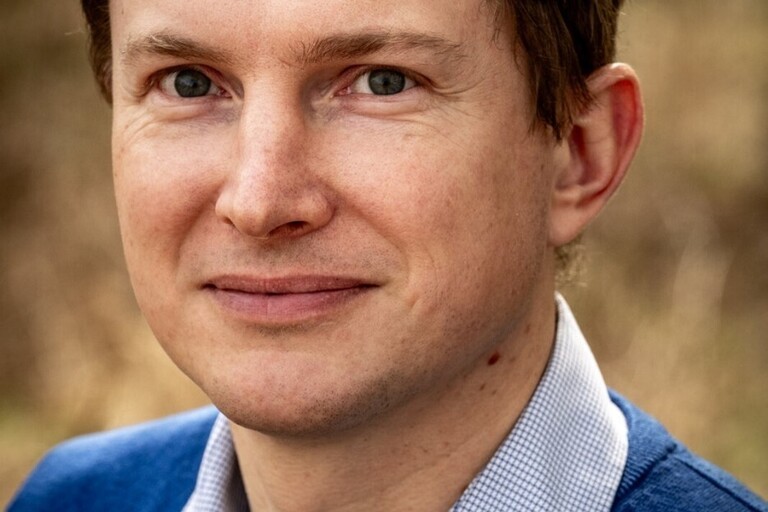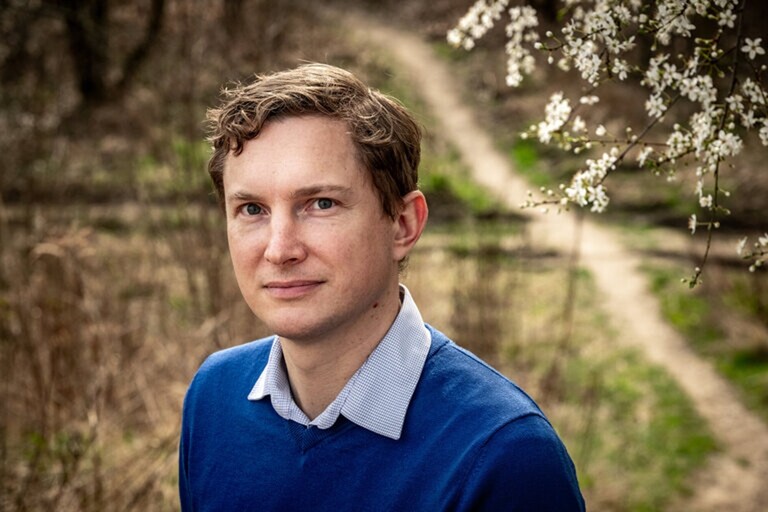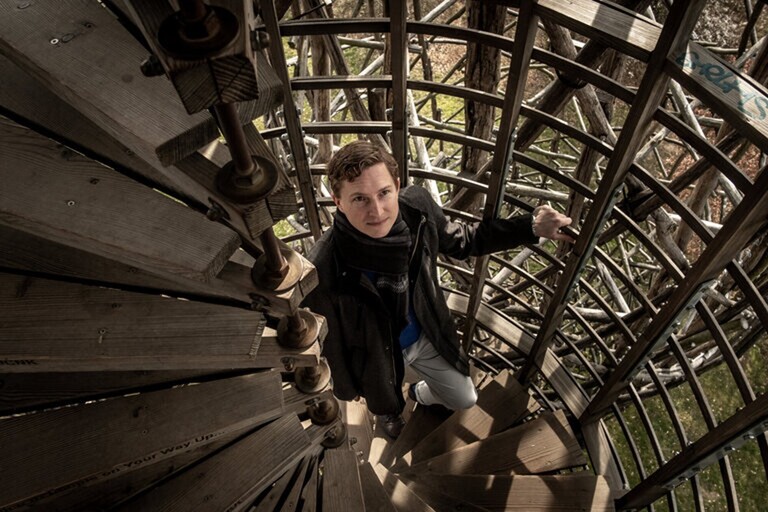On sexualized violence not only in the church environment
Daniel Bartoň graduated from the Faculty of Law of Charles University. He studied ecumenical theology at the Evangelical Theological Faculty of Charles University.
He also studied abroad, at the University of Cambridge in England, as well as in Athens and Paris. He is currently working as an independent lawyer in Prague and as an assistant professor at ETF CU. In his legal and academic practice he focuses mainly on the topics of religious freedom, human rights and assistance to victims of crime. He also freely cooperates with the association "Someone will believe you". He is also an assistant preacher of the Evangelical Church of Czech Brethren.
In a sense, you are dealing with evil in your daily practice. Isn't it overwhelming?
I would say that for me, worse than fighting evil is fighting its consequences. I am in close contact with victims of various forms of violence, and they are very damaged as a result of evil actions. I have to work with that somehow.
Where do you get the motivation to keep fighting evil?
When I see that the effects of evil are being eliminated, mitigated, through long-term action, it is a reward in itself. Another level is that through these cases I meet great people. Both those who are hurt by the evil and those who are trying to deal with it. And I would say that we encourage, support and empower each other. And then, I would say that the spiritual level is important to me. I have the opportunity to bring all the bad things to Christ in silent prayer and leave them with him.
Is faith also a motivation for your work, that is, to stand up for the vulnerable, to stand on the side of good?
I guess so. I don't think I'm able to describe it very precisely. It probably goes deeper than that. I've had a sense of justice since I was very young. Injustice has always been hard to take, as has authority that is unearned and enforced from a position of power. I confess that I do not know to what extent this attitude of mine was co-created by the ethics of the church.
Do you also work with your clients pastorally? Is there room in law practice for the question of forgiveness or mercy?
A large part of my conversations with clients have a spiritual dimension. It depends on whether they perceive it and want to talk about it. If they do, we talk about it. Questions of forgiveness or what kind of God can be believed in at all after what has happened come up often. However, my role as an attorney is to primarily take care of the legal side of things. I therefore consider it ideal to have other professionals take care of the other aspects. Some clients come to me with spiritual questions even though they have a spiritual companion, because they feel a kind of connection between law and spirituality. For me as a lawyer, on the other hand, it is valuable to see what spiritual implications a crime can have. I usually try to present these consequences to the court or the police, who are often unaware of them as secular authorities.
How do you feel about the question of theodicy? Why does God allow evil things to happen?
This is a question I revisit quite often. I don't believe in a God who does evil, violence, who punishes. I see these negative concepts as the impact of situations where we humans try to be without God, pushing him aside. For me, this then raises the question of how to invite God into these situations so that he can transform them.
Contemporary society is highly polarized. Can we even agree on what is good and what is evil?
The problem is that if I try to label something as good or evil, I am almost always met with some opposition. This is of course frustrating. But the question is what makes the other person react negatively to me. My hope is that if we spend enough time and effort talking together, there is a good chance that we can come to some sort of consensus.
In your legal practice you represent victims of sexually motivated violence. What led you to this professional focus?
It started when the first rape victim came into my office. While handling that case, I realized that our society was not adequately responding to sexualized violence. I encountered a bad attitude on the part of the law enforcement authorities [court, prosecutor or police authority, ed.], which led me to focus more on this issue. In the meantime, other victims started approaching me. The demand of my clients that I present their perspective publicly also contributed to my profiling, because victims often do not have the strength to bring their story to the public.
Why is sexualised violence treated differently in legislation than violence in general?
It reflects our experience that interference with sexual intimacy often has very devastating consequences. There is often a difference, for example, in terms of psychological consequences. The fact that we have crimes against human dignity in the sexual sphere means that we are better able to take into account their specificity. As a rule, this also entails harsher penalties than for general violent crimes.
In early April, the Chamber of Deputies passed an amendment to the law redefining rape. Now, non-consensual intercourse is to be considered rape, not just forced intercourse, as was the case until now. What does this mean for future practice?
First of all, it should help to ensure that law enforcement authorities are able to prosecute these perpetrators without much difficulty. This includes not only situations that are currently considered borderline, but also those that fall outside the law. For example, if a person says they do not want intercourse but does not physically resist, the aggressor's actions are not currently considered criminal. The new definition should easily cover this. It should also clarify the notion of defencelessness, which is known in current legislation but has been treated in practice in a very narrow way. The amendment has succeeded in making explicit, among other things, the victim's freezing as one of the examples of defencelessness.
The topic of the so-called Istanbul Convention has long and strongly resonated in the Czech environment. A part of society has expressed considerable resentment against it. What was the controversy surrounding the Convention and how do you explain its rejection?
I think that the opponents managed to turn the Convention into a symbol that managed to absorb all the negatives of our contemporary society. They have included things in it that are not really there. The issues of gender, traditional values, the traditional family are all linked to this - as if the Convention could prevent families from continuing to exist. Yet it seeks to combat only those family arrangements that are based on violence.
You also deal with cases of sexualized violence in the church environment. How widespread is this problem in the Czech context?
We struggle with a lack of data in this area. We know that a significant part of the population has experience of sexualised violence. Surveys indicate 10-50% of the population. It is highly unlikely that it would be any different in a church setting. Moreover, the percentage of reported acts is very low. For example, less than 1,000 rapes a year are dealt with in the country, which clearly does not reflect reality. In a church setting, these acts are even less talked about because of the taboo nature of sexuality.
Do you observe any statistical deviations from the general population in the church environment?
Those church communities that are more prone to abuse are those that are hierarchically organized and abuse of power is part of the system. Conversely, there is no conclusive data that celibacy is a priori problematic in this regard. We also have enough cases of abuse by non-celibate persons.
Would you say that sexualized violence in the church is different than non-church violence? What role does the spiritual level play in it?
Religious terminology can be misused to achieve nefarious ends. If one argues from a position of spiritual authority that it is necessary for one's spiritual growth to undergo some sexualized rituals, it is very difficult for the simple unsophisticated layman to argue against it. There are also cases where a priest has claimed to his charges that he has permission from the Vatican for this type of action. These are arguments that cannot be used outside a religious context.
The difference could also be that in a church setting the case marks the whole community because it extends into close interpersonal relationships. What can help such a community through this period?
These situations may not be specific to religious settings. It applies to any community that has some persons of authority at its core whom it trusts.
It is important to work with the affected community as a victim. The experience of trauma is very similar for so-called secondary victims as it is for primary victims. The process of coming to terms with the traumatic experience takes quite a long time. It is essential to have sufficient awareness of the situation and not to push the affected people into anything. We should be available to them - whether for talking, listening or clarifying the situation.
How is the process of dealing with offences within the ECCB? What tools does the church have?
The church has the possibility of pastoral care, which primarily can and should be provided by its individual members to each other. For more serious cases, there is a system of pastoral councils. Anyone can make a suggestion to them concerning a church member in charge [e.g., pastor, presbyter, Sunday school teacher, camp counselor, etc.]. The pastoral councils investigate whether a violation of church rules has occurred. These include church orders, but also church creeds and scripture. If the pastoral council finds that a person has disobeyed these rules, it may prohibit him or her from performing certain activities or suggest corrective measures, such as therapy or supervision.
In your opinion, is the system of pastoral councils well set up? Is it sufficiently effective in dealing with transgressions?
The system was not designed to deal with abuse of power, especially in the sexual sphere. Just the fact that the Order of Pastoral Ministry has been amended in the last few sessions of the Synod suggests that it is not set up optimally. What I see as positive is that within the ECCB it has been possible to call out what is not working, propose changes and adopt them fairly quickly.
The Pastoral Order is not a detailed procedural code because it assumes that lawyers who know how to run processes will work with it. But so far we have not given much thought to the kind of people we elect to pastoral councils. Ideally, their composition should include a fairly wide range of qualifications - from clergy to active lay people, lawyers to psychologists or psychiatrists. The second thing is what conditions we create for the members of pastoral councils to do their work as a church. These are volunteer positions, but at the same time very time-consuming. If we want the system to function professionally, we will have to shift the conditions for the pastoral councils to work. Or we have to accept that the process will have flaws.
How do you think specific incidents should be communicated? Should discretion or transparency be the priority?
Both principles are important. The way of thinking that I encounter most in the church at the moment is heavily skewed in favor of confidentiality and not sharing information. Amazingly, despite how small the church is, some information is simply not shared. But at the same time, I think it is impossible to keep quiet about some things. The approach that was practiced until recently involved making the details of specific transgressions known officially to a relatively small number of people. But the range of people who knew that something was wrong was much larger. And so information harmful to all parties could be spread.
It is entirely appropriate to openly and publicly name, for example, the failure of a parish priest, to make it clear what it consisted of, whether it was repetitive, etc. Of course, it is not necessary to give all the details, e.g. of the identity of the victims, where a general description will suffice. This will help us to decide how to approach any further involvement of the person concerned. This protects the community from incidents happening again.
In recent years, the topic of sexualized violence has been systematically addressed by our church. Is it doing something so well that it could be an inspiration to the outside world?
I have a positive view of the approach of the church leadership and the people in charge. They take the issue seriously and want to move the church forward responsibly in this area to make it a safe environment. This is not a common thing. In many church communities, there is a greater role to play in protecting their own interests, in trying not to change the established order or to cover up for previous troubles.
One such small thing with potentially big implications that I am pleased about is that the non-barring of sexual offences against human dignity has been woven into the Order of Pastoral Ministry.
What do you consider to be evil in contemporary Czech society?
I consider the normalization of violence to be particularly serious. The fact that we accept violence as something commonplace, inevitable. The idea that if violence appears on the other side, it entitles us to take up violence ourselves. I see the justification of violence, e.g. in the context of family conflicts, political struggles or "just war", as creating space for evil to continue to proliferate.
prepared by Adéla Rozbořilová
photo by Hynek Glos (Charles University)


